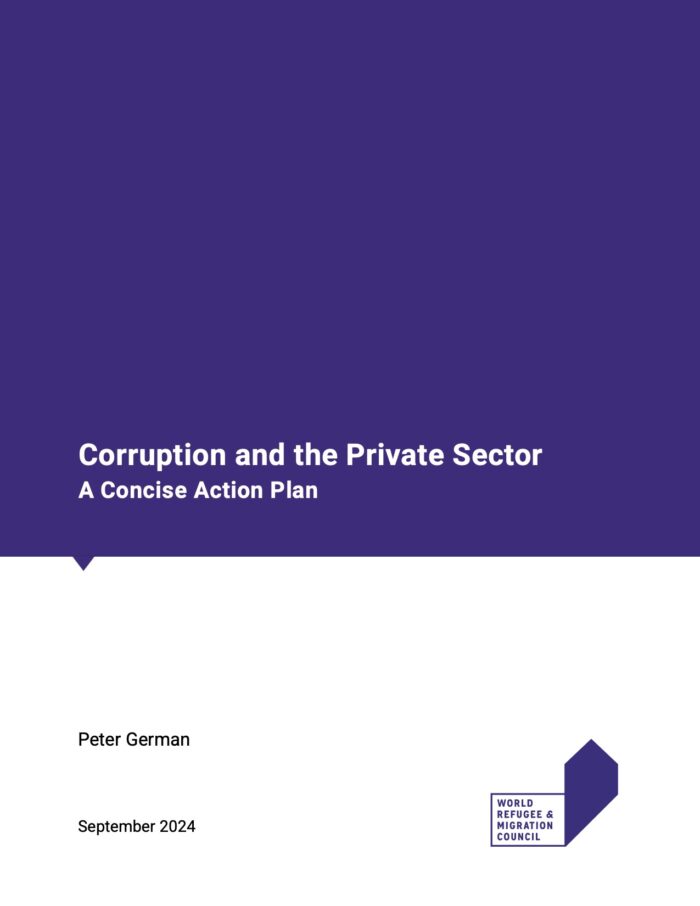Peter German Canadian Task Force Against Global Construction Download the Action Plan: The pace of life, and crime, have accelerated exponentially in recent years. As technology races ahead, enabling globalization of both trade and transportation, so does the threat environment and the need to mitigate those threats to the greatest extent possible. The intent of this […]
Multilateral Action Model on Reparations
Developing an Effective System for Reparations and Compensation for Ukraine and Ukrainians for Damage Caused by the Russian Federation
A Renewed Call to Action: Responding to Refugees and Forced Displacement
The World Refugee & Migration Council’s new report on the global response to forced displacement finds political will in short supply, with dangerous backsliding by governments, increasing xenophobia and buck-passing of responsibility.
Task Force Summary Report: Key Recommendations
The North and Central American Task Force on Migration has launched its report with key recommendations for improving regional cooperation and responsibility sharing.
Institutional and Political Drivers of Migration in Central America
When Central American migrants are asked why they decided to leave their countries, they give a variety of responses; they’re seeking better economic opportunities, family reunification, protection from extortion and criminal violence, hope for a better future for their children. Often it is a combination of factors that drive migration, and the drivers of migration are themselves linked.




